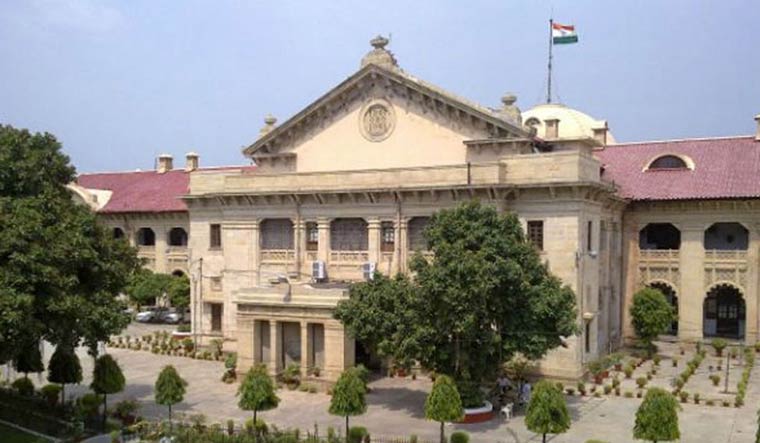The Allahabad High Court on Monday directed the Lucknow administration to remove with immediate effect all the posters and hoardings it had put up across the city of people who protested against the Citizenship (Amendment) Act and against whom recovery notices have been issued.
The Allahabad High Court had taken suo motu cognisance of the issue on Saturday evening and heard the matter on Sunday. The Allahabad High Court had termed as ‘unjust’ the act of putting up posters with photos, names and addresses of those who had been issued recovery notices following the protests against the Citizenship (Amendment) Act on December 19. The advocate general of the state had argued that the High Court did not have jurisdiction to hear the case as the posters had been put up in Lucknow.
While underscoring the right to privacy as a fundamental human right recognised in the United Nations Declaration of Human Rights, the High Court order transcends this to place the government's act as a violation of the Constitution.
The High Court order notes, "… the cause is not about personal injury caused to the persons whose personal details are given in the banner, but the injury caused to the precious constitutional value and its shameless depiction by the administration. The cause as such is undemocratic functioning of government agencies, which are supposed to treat all members of public with respect and courtesy and at all time should behave in manner that upholds constitutional and democratic values".
The High Court, on Monday afternoon, said that the posters must be removed immediately and that the police commissioner and the district magistrate submit an affidavit on the issue on March 16. This means that the administration cannot wait till March 15 to pull out the posters and then submit its reply a day later to the court.
The Allahabad High Court judgement has evoked mixed reactions. Some believe that it was confidence inspiring that the administration had made public the names of those who were responsible for damaging public and private property during the protests against the Citizenship (Amendment) Act. “The posters show how strict the administration is about dealing with troublemakers. People will think twice before causing arson in the name of protest,” said one onlooker at a huge poster with 28 photographs mounted next to Lucknow’s popular Sheroes Café, which is run by acid attack survivors.
also read
- Rs 35,000 fine for charging Rs 18 for a carry bag!
- Who is IIT baba? Abhay Singh's father wants him to take care of family: 'Come home'
- Chandrabhan Paswan: BJP's surprise pick for Milkipur bypoll packs a punch
- Mayawati wants special birthday gift from supporters ahead of Delhi assembly polls
- Ex-Union minister Sanjeev Balyan says his security withdrawn for flagging police corruption
Sarwan Ram Darapuri, a retired IPS officer who was arrested despite being under house arrest for inciting violence, said, “We have not been proved guilty. We are out on bail because the police was unable to give proof of our involvement in any kind of violence. By putting up our posters, the administration very mischievously put our lives in danger. What if some hordes were to descend on our homes under the guise of Holi revellers?”
Sadaf Jafar—the only woman arrested in Lucknow over the anti-CAA protests and whose face is also on the posters—told THE WEEK, “This order is a slap on the face of the authoritarianism being displayed by the state government. It restores my faith in the rule of law and also in the Constitution for which we are fighting. It also sets a precedent as the court has said that such actions should never been taken in the future. However, it does not make me feel safe as our faces and addresses are already in the inboxes and social media accounts of people. Some media outlets have carried clear pictures of the hoardings.”
The court order states, "...suffice to say that no law is in existence permitting the state to place the banners with personal data of the accused from whom compensation is to be charged... we do not find any necessity for a democratic society for a legitimate aim to have publication of personal data and identity. The accused persons are the accused from whom some compensation is to be recovered and in no manner they are fugitive..."
It concludes by saying, "The state of Uttar Pradesh is directed not to place such banners on roadside containing personal data of individuals without having authority of law.”


